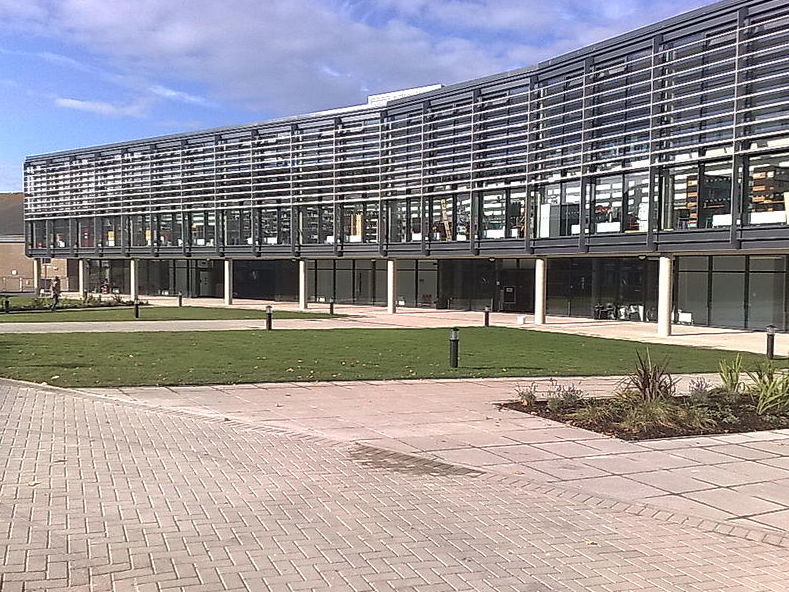University launches investigation into sex work support group's stall at freshers' fair
‘We want to make clear that the university does not promote sex work as an option to students’

The University of Brighton is launching an investigation after an outreach support group for sex workers hosted a stall at its freshers’ fairs.
The decision to allow the Sex Workers’ Outreach Project Sussex (Swop) to attend the University of Brighton freshers’ events has been criticised online for “encouraging students to go into sex work”.
But the organisation has defended its actions – saying it was simply there as a support service for students who have chosen to engage in sex work to help pay for university fees and expenses.
A University of Brighton spokesperson said the institution would look into the organisation’s presence at the event and added they do “not promote sex work to its students”.
The stalls from Swop – which describes itself as a “discreet and confidential” service for women in the sex industry who live or work in Sussex – offered condoms and leaflets on sexual wellbeing.
In a series of tweets, the organisation promoted its attendance saying: “1 in 6 students does sex work or thinks about turning to sex work. We can help.”
The organisation said it also attended the University of Sussex’s life and wellbeing fair last week.
“If you’re topping up your fees with sex work, or struggling to balance work and studies, or want to talk and don’t know where to go... we’re here for you,” Swop said on Twitter.
Feminist campaigner and writer Julie Bindel, the co-founder of the law reform group Justice for Women, said: “This is beyond disgraceful. It makes me so angry that the sex trade’s become normalised and pimped to women as though it is a harmless and respectable way to earn a living.
“There should be an inquiry by the university into this.”
Following criticism, the organisation tweeted in defence: “SWOP are not encouraging, glamouring or suggesting that students to be sex workers.”
It added: “SWOP have never idealised sex work. However, we understand why students may turn to sex work, and navigating the legal precariousness as well as potential danger mean that students are extra vulnerable and we will help.”
Academics and students jumped to the defence of the group. Alison Phipps, professor of gender studies at the University of Sussex, thanked it for its “great work”.
Tomi Ibukun, president of Brighton Students’ Union which organised the fair, said the organisation was there “to raise awareness of the specialist support they provide should it ever be needed”.
“They were not there to advocate sex work as an option to our new students,” he added.
Mr Ibukun said: “The SU and University have a wide range of welfare and support services in place to help students who are struggling financially. These are available on a confidential basis and are designed to support wellbeing on a non-judgemental basis. It is unfortunate that some people have misinterpreted the attendance of Swop at our Freshers’ Fair.”
The University of Brighton spokesperson said: “The Freshers’ Fair is an event organised by students for students and as such is managed by the Students’ Union.
“The university is nevertheless exploring this matter further with the Students’ Union to allow us to gain a full understanding of the aims in inviting Swop to the event and to ensure due care is taken when presenting students with third-party information on highly sensitive and emotive issues.”
They added: “We would like to make it clear that the University does not promote sex work as an option to students.
“We provide a wide range of welfare support as well as financial assistance to any students who suffer hardship.
“This is offered on a confidential and non-judgemental basis, balancing respect for our students’ right to make their own decisions and our wider duty of care.”
University can be an expensive endeavour, bringing up a number of unexpected costs that loans alone cannot accommodate.
Earlier in the summer, a study found that more than one in 10 students are “using their bodies” to make money when they are caught short of funds.
Subscribe to Independent Premium to bookmark this article
Want to bookmark your favourite articles and stories to read or reference later? Start your Independent Premium subscription today.

Join our commenting forum
Join thought-provoking conversations, follow other Independent readers and see their replies